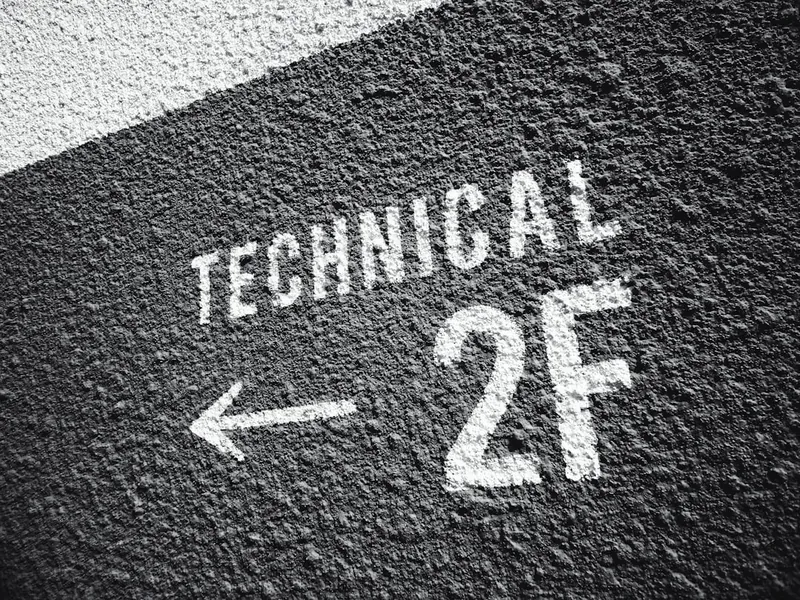
How Do You Audit Technical SEO?
A comprehensive technical SEO audit is crucial for ensuring your website performs optimally in search engine rankings. This systematic approach helps identify and fix issues that could be holding back your site’s performance. Let’s break down the key components of a thorough technical SEO audit.
Ensuring Search Engines Can Find Your Pages
Start by examining your website’s crawlability and indexability. Check your robots.txt file for any unintended blocking directives, verify your XML sitemap is up-to-date and properly submitted to search engines, and ensure your internal linking structure allows search engines to discover all important pages. Regular crawl reports can help identify orphaned pages or broken links that need attention.
On-Page Optimization: Optimizing Your Website for Search Engines
Focus on essential on-page elements including title tags, meta descriptions, header tags, and URL structure. Ensure each page has unique, descriptive meta information and follows proper heading hierarchy. Check for duplicate content issues, implement canonical tags where necessary, and optimize your content structure with proper schema markup to enhance search engine understanding.
Technical Performance & Mobile-Friendliness
Website speed and mobile optimization are critical ranking factors. Analyze your site’s loading times, check Core Web Vitals metrics, and ensure responsive design across all devices. Address issues like image optimization, browser caching, and minimize render-blocking resources. Mobile-first indexing makes it essential to prioritize mobile performance in your audit.
Security & Internationalization
Verify your SSL certificate is properly implemented and all pages are served over HTTPS. For international websites, check hreflang tags, country-specific domains, and proper language targeting. Ensure your security headers are configured correctly and implement measures to protect against common vulnerabilities.
Essential SEO Audit Tools
- Google Search Console: Monitor indexing, search performance, and technical issues
- Google PageSpeed Insights: Analyze loading speed and Core Web Vitals
- SEO Site Checkup: Comprehensive technical SEO analysis
- GTmetrix: Detailed performance analysis and recommendations
- Mobile-Specific Testing Tools: Verify mobile-friendliness and responsiveness
Remember to document all findings and create a prioritized action plan based on the impact and effort required for each issue. Regular audits ensure your website maintains optimal technical health for search engine performance.

Which Tool is Best for SEO Audit?
When it comes to conducting a comprehensive technical SEO audit, choosing the right tools is crucial for success. Let’s explore the most effective tools available for different aspects of your SEO audit.
Google Search Console
Google Search Console stands out as an essential free tool for any SEO audit. It provides direct insights into how Google views your website, including indexing status, mobile usability issues, and search performance metrics. The tool also helps identify critical technical issues that might affect your site’s visibility.
Google PageSpeed Insights
For performance analysis, Google PageSpeed Insights offers detailed reports on both mobile and desktop versions of your website. It provides actionable recommendations for improving page speed and Core Web Vitals, which are crucial ranking factors in today’s SEO landscape.
SEO Site Checkup Tools
Platforms like Screaming Frog and Ahrefs offer comprehensive site auditing capabilities. These tools can crawl your entire website, identifying technical issues such as broken links, duplicate content, and meta tag problems. They’re particularly valuable for larger websites with numerous pages.
GTmetrix: Performance Analysis Made Easy
GTmetrix excels in providing detailed performance reports with actionable recommendations. It offers insights into page load times, page size, and request counts, along with suggestions for optimization. The tool’s waterfall analysis helps identify specific elements slowing down your website.
Mobile-Specific Testing Tools
With mobile-first indexing being crucial, tools like Google’s Mobile-Friendly Test and Mobile SEO Tools are essential. These help ensure your website provides an optimal experience for mobile users, which is vital for SEO success in today’s mobile-dominated landscape.
- Google Search Console: Best for overall SEO health monitoring
- PageSpeed Insights: Ideal for performance optimization
- SEO Site Checkup Tools: Perfect for comprehensive technical audits
- GTmetrix: Excellent for detailed performance analysis
- Mobile Testing Tools: Essential for mobile optimization
Each tool serves a specific purpose in your SEO audit toolkit, and using them in combination provides the most comprehensive analysis of your website’s technical SEO health. Remember to regularly conduct audits using these tools to maintain optimal website performance and search engine visibility.

What is Technical SEO Checklist?
A technical SEO checklist serves as your roadmap to ensuring your website meets search engine requirements and performs optimally in search results. This comprehensive guide breaks down the essential elements you need to monitor and optimize for better search visibility and user experience.
Ensuring Search Engines Can Find Your Pages
The foundation of technical SEO begins with proper site crawling and indexing. Create and maintain an updated XML sitemap, implement a logical site structure, and ensure your robots.txt file is correctly configured. Regular crawl error monitoring helps identify and fix accessibility issues before they impact your rankings.
On-Page Optimization: Optimizing Your Website for Search Engines
Focus on optimizing meta titles, descriptions, header tags, and internal linking structure. Ensure your content is properly structured with schema markup, and implement canonical tags to prevent duplicate content issues. Regular content audits help maintain relevancy and freshness signals.
Technical Performance & Mobile-Friendliness
Website speed and mobile responsiveness are crucial ranking factors. Optimize image sizes, leverage browser caching, and minimize code bloat. Ensure your site delivers a seamless experience across all devices through responsive design and accelerated mobile pages (AMP) implementation where appropriate.
Security & Internationalization
Implement HTTPS encryption to protect user data and boost search rankings. For international websites, properly configure hreflang tags and country-specific domains or subdirectories. Regular security audits and SSL certificate maintenance are essential for maintaining trust signals.
Essential Technical SEO Tools
- Google Search Console: Monitor indexing, search performance, and technical issues
- Google PageSpeed Insights: Analyze and optimize page loading times
- SEO Site Checkup Tools: Comprehensive technical audits and recommendations
- GTmetrix: Detailed performance analysis and optimization suggestions
- Mobile-Specific Testing Tools: Verify mobile responsiveness and user experience
By following this technical SEO checklist and regularly utilizing these tools, you’ll maintain a strong technical foundation for your website’s search engine optimization efforts. Remember to conduct regular audits and stay updated with search engine guidelines and best practices.
What is technical SEO audit report?
A technical SEO audit report is a comprehensive document that evaluates a website's technical health and search engine optimization performance. This detailed analysis examines crucial elements like site speed, mobile responsiveness, indexing status, URL structure, XML sitemaps, robots.txt configuration, and overall site architecture.
The report identifies technical issues that could hinder search engine crawling, indexing, or ranking performance, and provides specific recommendations for improvement. Key areas typically covered include:
• Site security (HTTPS implementation)
• Page load times and Core Web Vitals
• Crawl errors and broken links
• Meta tags and structured data
• Internal linking structure
• Site accessibility
Pro tip: Prioritize fixing critical issues identified in the audit based on their potential impact on search performance and the resources required to implement solutions.
A well-executed technical SEO audit serves as a roadmap for optimizing your website's technical foundation, ultimately improving search visibility and user experience.
What is the difference between SEO analysis and an SEO audit?
SEO Analysis vs. SEO Audit: Key Differences
While often used interchangeably, SEO analysis and SEO audit serve different purposes in your digital marketing strategy. An SEO analysis typically focuses on specific aspects of your website's performance, such as keyword rankings, backlink quality, or competitor comparison. It's like taking a snapshot of particular SEO elements at a given time.
In contrast, an SEO audit is a comprehensive, systematic review of your entire website's SEO health. It examines everything from technical issues and content quality to user experience and mobile optimization. Think of it as a full medical checkup for your website.
Pro Tip: Start with a full SEO audit quarterly, then conduct regular SEO analyses monthly to track specific metrics and make incremental improvements.
The key takeaway is that analysis is an ongoing monitoring tool, while an audit is a thorough, periodic assessment that guides your overall SEO strategy.
What is an SEO audit tool?
An SEO audit tool is a specialized software that analyzes websites to evaluate their search engine optimization performance and identify areas for improvement. These tools scan various technical aspects of a website, including meta tags, content quality, backlink profiles, site speed, mobile responsiveness, and keyword optimization.
Popular SEO audit tools like Semrush, Ahrefs, and Screaming Frog crawl through website pages to generate detailed reports highlighting both strengths and weaknesses in a site's SEO strategy. They often provide actionable recommendations for fixing issues that might be hurting search rankings.
Pro tip: Start with a free tool like Google Search Console for basic SEO insights before investing in premium audit tools. This can help you understand your website's fundamental SEO health and identify critical issues that need immediate attention.
In essence, SEO audit tools are invaluable resources for maintaining and improving a website's search engine visibility and overall performance.
How do I know if my website needs an SEO audit?
Signs Your Website Needs an SEO Audit
Your website likely needs an SEO audit if you notice any of these key indicators:
• Declining organic traffic over several months
• Poor rankings for important keywords
• High bounce rates and low time-on-site
• Significant drop in conversions
• Recent Google algorithm updates affecting performance
• Outdated content or broken links
• Slow page loading speeds
• Mobile responsiveness issues
A quick way to check if you need an audit is to search for your main keywords and see if your site appears in the top results. If you're not ranking well for relevant terms, it's time for an audit.
Pro tip: Use Google Search Console to monitor your website's performance monthly. If you notice a sustained downward trend in impressions or clicks, this is a clear signal that an SEO audit is needed.
Remember, regular SEO audits (every 6-12 months) are recommended for maintaining optimal website performance.
How do you do technical SEO?
Technical SEO involves optimizing your website's technical aspects to improve search engine crawling and indexing. Start by ensuring your site has a clean, logical structure and submit an XML sitemap to search engines. Focus on improving page load speed by optimizing images, leveraging browser caching, and minimizing code. Implement proper robots.txt directives and canonical tags to guide search engines effectively.
Key technical elements include:
• Mobile responsiveness
• HTTPS security
• Clean URL structure
• Proper meta tags
• Schema markup implementation
A crucial actionable tip is to regularly conduct technical SEO audits using tools like Screaming Frog or Google Search Console to identify and fix issues like broken links, duplicate content, or crawl errors.
Remember that technical SEO is foundational - without a solid technical foundation, even great content may struggle to rank well in search results.
